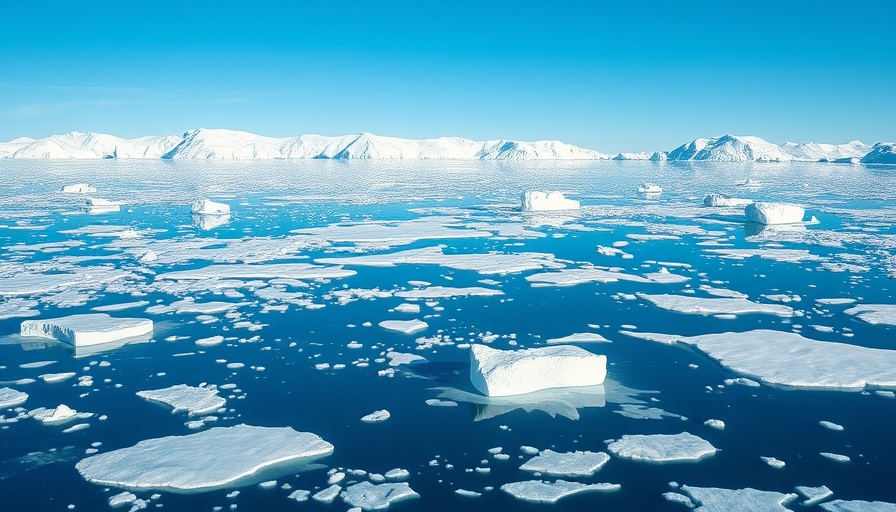
Greenland's Unyielding Stance Amid International Interest
In recent years, Greenland has become a focal point of international interest, particularly from the United States. President Trump’s earlier comments about purchasing the world’s largest island raised eyebrows globally, yet Greenlanders are firm in their sentiment: their land is not for sale. Despite this, they are keen on engaging in business ventures that could enrich their economy.
What Does “Open for Business” Really Mean?
When Greenlandic residents say they are not for sale but open for business, they emphasize their desire to remain sovereign while inviting investment in sectors like tourism, sustainable mining, and fisheries. With a population of only about 56,000, economic opportunities are precious, and the intention is to leverage partnerships that foster growth without compromising cultural integrity or autonomy.
Historical Context: Greenland’s Quest for Autonomy
Historically, Greenland has been a territory that balances its Danish roots with emerging self-governance. In 1979, Greenlanders were granted home rule, allowing them to self-manage local affairs. This autonomy has allowed for a gradual shift to economic independence, making them cautious about foreign influence. The recent discussions have reignited debates about the island’s destiny—whether it should embrace global partnerships or prioritize isolationist policies.
International Relations: The Geopolitical Landscape
Greenland's strategic position in the Arctic is increasingly important as global powers, including the U.S. and China, express interest in the region. The environmental concerns regarding climate change mean that resources previously unreachable due to ice cover are now becoming accessible. Understanding these dynamics is essential to grasp the contemporary interest in Greenland, as nations vie for influence over Arctic resources.
Economic Opportunities: The Path Forward for Greenland
Emerging from negotiations and offers, Greenland is inclined towards business ventures that promise sustainability and long-term benefit. Areas of focus include tourism—where pristine landscapes and rich culture can attract visitors—and the green energy sector, which aligns with global shifts towards renewable resources. By developing their infrastructure without sacrificing their culture and land, Greenlanders are crafting a unique identity on the world stage.
Diverse Perspectives on Greenland's Future
While opinions vary on whether foreign investment is beneficial or detrimental, local voices emphasize a careful approach. Many residents express concern that unchecked development could lead to cultural dilution and environmental degradation. As discussions continue, it is essential to prioritize dialogue among stakeholders to find approaches that align with Greenland's values and aspirations.
Call to Action: Engage with Greenland’s Development Strategy
As Greenland navigates its economic future, global citizens should consider how their companies or initiatives can align with the island's desire for innovation and sustainability. This can foster a mutually beneficial relationship that respects cultural autonomy while enabling growth. Engaging with Greenlanders through collaborative ventures presents unique opportunities for shared success.
 Add Element
Add Element  Add Row
Add Row 



Write A Comment